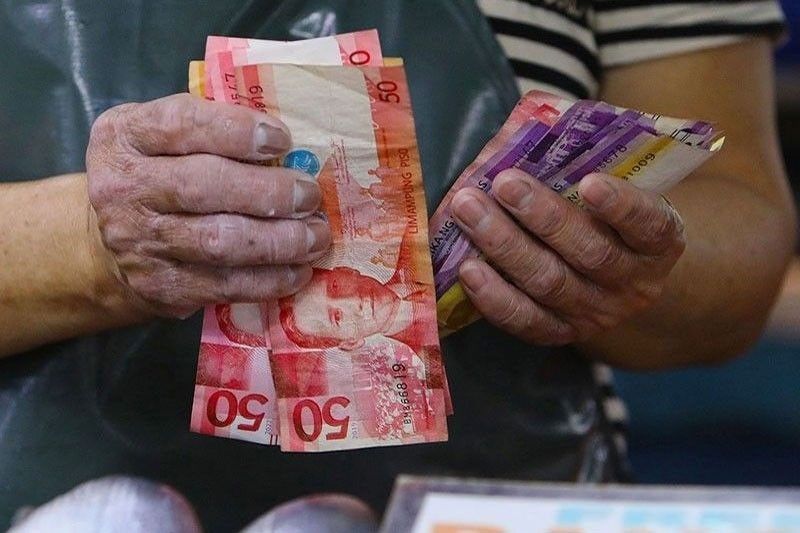The bill to increase the national minimum wage


Preface to today’s column: I spoke before the House Committee on Labor and Employment on the above subject using but not reading the prepared text below. I was asked in my capacity as Emeritus Economics Professor at the University of the Philippines. I believe I was asked for my views because of my experience, not only as professor who had worked on these issues, but also because of my previous posts in government as (founding) director-general of NEDA and secretary of planning (1973-81) and former chair of the National Economic Council (1970-1972).
There are several bills before the House committee on labor and employment on the matter of “national” minimum wage legislation.
However, it appears that the most serious consideration is being given to a House bill that adds P100 per day on top of the current minimum wage. (A similar bill is also being considered in the Senate.)
As I interpret this proposal, when calculated at 26 working days per month, P100 per day means a P2,600 per month to be added to the existing minimum wage.
Since workers are also required to give a 13th month bonus at the end of the year, the proposal actually amounts to a total of P33,800 at the end of the year per worker. There are, and will continue to be, many regional minimum wages, plus this national supplement.
This is a hefty rise in the minimum wage. In fact, some proposed bills filed in Congress seek even higher demands for the increase in the minimum wage, the highest being P750 per day!
The suggested magic number for a raise is based on some arbitrary choice. In general, it is essentially politically calculated.
The proposal also essentially discards a system of wage setting through the regional wage boards.
Are we really trying to discard the regional wage boards?
Congress created the regional wage boards in order to modulate the unsettling demands for minimum wage increases of many sectors of labor and to help quiet any industrial restlessness.
That institutional setup has enabled consultations between labor and management with the government serving as the third party in order to find feasible solutions that promote industrial peace. Ideally, wage demands are settled in collective bargaining agreements between industry stakeholders, without even government interventions.
Market-friendly solutions to wage issues take into account the prevailing economic conditions that reflect the true supply and demand situation for the country’s labor services.
The issue of wage determination belongs to the market place and not to the political arena. So, government participation in direct wage-setting is an anomaly. There are other measures (described below) which could help alleviate the conditions of workers through other economic and social measures.
It is unwise to discard the Tripartite dialogues at the regional wage boards. Perhaps there are too many wage boards and these can be compressed into fewer. The wage boards are an essential institutional component to keep the parties to the Tripartite conference focused on what is possible in the arena of minimum wage-setting that considers “fairness to all the three parties” – for the common good.
The state has turned to Tripartite dialogues as a means of finding solutions to labor-management conflicts to resolve differences. The Tripartite dialogues take into account the overall public good in the resolution of the issues at hand.
It is useful to be reminded of the wise counsel offered by the Ranis Report when it examined Philippine development issues. Incidentally, this was way back five decades – that is, half a century – ago. The Report essentially pointed out that wage-setting is only an aspect of the many important economic policies that work together. It said:
“The minimum wage cannot, and should not, be looked upon as an effective instrument for determining the general level of money wages. Governmental intervention in wage decisions for particular industries or groups of workers through compulsory arbitration procedures or in the form of wage orders by the Wage Commission are not appropriate mechanisms for attempting to influence the level of money wages.”
Consequences of passing the current bill
There are three notable consequences from this House bill if it is adopted into law.
First, the measure will abet inflationary forces in the economy. As an income stimulus, the new wage income will encourage expansion of demand on goods. Domestic goods will have to bear added costs due to the wage increase. A wage-induced cost inflation is added onto domestic production.
The normal spending response observed in more economically flexible advanced economies does not apply to us. Our limited domestic supply chain linkages and therefore high import propensity will dissipate new demand into inflationary pressure. Moreover, the wage increases constitute an added inflationary factor on the production side..
Second, the inflationary experience can cause the peso to depreciate as a consequence, thus wiping out some of the money gains from the wage increase.
Third and finally, the minimum wage will cause unemployment. More hardship will fall on a sector of labor that used to have employment in the organized economy of the country.
Some enterprises would be forced into bankruptcies or closure. Other firms will protect their costs by buying labor-saving devices or equipment to reduce wage costs.
Still other enterprises could lose their cost position to other competing countries where workers’ costs are lower. This means job migration from our country to other competing countries. So job losses are likely to come from this measure.
A consequence of such job losses in the market is the enlargement of the informal – or unorganized – labor market. Those who lose their jobs will find themselves working in the informal job market. Some of them will enter jobs even at lower wages. In addition to more unemployment, an increase in underemployment will happen. Thus, a measure designed to uplift the laboring class who earn the minimum wage does more damage to those who lose their jobs.
(To be continued)
For archives of previous Crossroads essays, go to: https://www.philstar.com/authors/1336383/gerardo-p-sicat. Visit this site for more information, feedback and commentary: http://econ.upd.edu.ph/gpsicat/
- Latest
- Trending































